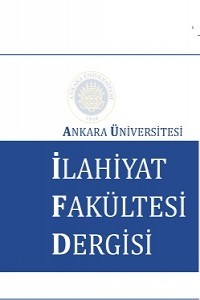Kur’an Kıraatinde Türklere Özgü Mahalli Okuyuş Sorunu
Kur’an’ı evrensel kabul gören Arap tarzını umursamayarak mahalli Türk ağzıyla okuma konusundaki ısrar, Türkiye’nin diğer pek çok sorunuyla bağlantılı bir kısırdöngü haline gelmiştir. Evrensel değerlerden kaçarak bizim ve ülkemizin özel olduğunu öne sürmek, hayatın her alanına ilişkin mahalli bir duruş icat etmek eskiden bizi sadece yalnızlaştırıyordu. Ancak Dünya’nın bu kadar küçüldüğü ve küreselleşmenin sınır tanımadığı şimdilerde artık bizi komik duruma da düşürmektedir. Arapçanın fonetiği konusunda Araplara rağmen belirleyici olamayız. Yine apaçık bir Arapça ile vahyedilen Kur’an’ın nasıl okunacağını; tecvidi, ilgili sesleri ve ağız hareketlerini mevcut kitabiyattan öğrenebileceğimizi varsaymak doğru değildir. Ses kitaptan öğrenilemez. Ayrıca, ülkemizde itibar gören kıraat kitaplarının Arap âleminde bizden çok daha yaygın okutulduğu halde mahiyeti farklı iki okuyuş türünün zuhur ettiğini; belirleyicinin kitap değil, kitabı okutan hoca olduğunu neden görmezden geliyoruz? Aslında İslami ilimler içinde ses merkezli kıraat eğitiminin fem-i muhsin (uzman ağzı) aracılığıyla verilebileceğini hicri ilk asırlardan beri bilmekteyiz. Ancak bilmediğimiz fem-i muhsinin ana vasfıdır. Fem-i muhsin, kitaba dayalı geleneği devam ettirerek Kur’an kıraatine emek veren ya da onu öğretmeye ömrünü feda eden emektar bir hoca değil; gerekli eğitimi alarak doğru / otantik okuyuş melekesini kazanmış bir Arap ya da onu aratmayacak kadar ona benzeyen bir okuyuşun sahibidir
Anahtar Kelimeler:
Fem-i muhsin, kıraat, ıàlÊb, tecvid
“The Question of Reciting the QurÊn in Regional Pronunciation: The Case of the
Turks” Turkish reciters of the QurÊn do not pay sufficient attention to the authentic Arabic style of pronunciation in their practice of recitation. Despite the fact that the Arabic pronunciation of the Holy Book is a worldwide practice, the Turks still insist on reciting the QurÊn according to their regional pronunciation, i.e., universal the traditional Turkish mouth. This situation is nothing but a typical reflection of obssesive attitudes against international values observable at many levels of the Turkish society. In the past, we would stay away from universal values and claim that our country and everything that belongs to us would be distinctively special. Following this line of logic, we would make up national stances regarding every single matter in this life, though this logic would not produce any positive result but separate us from the rest of mankind. In today’s world too, such obssesive attitudes lead us quite ridiculous situations in a world that has turned into, through globalization, a kind of small village. We Turks should not attempt to determine the phonetics of the Arabic language and stand against their long-lasting conventions. Neither should we claim that we can learn everything solely from books regarding the recitation of the QurÊn. God has revealed the QurÊn in a clear Arabic language. We, therefore, should not assume that merely through studying the books available in the field of QurÊnic studies we can acquire a complete knowledge sufficient for us to learn competently how to recite the QurÊn, to perform the art of recitation (tajwÙd), to articulate the proper letters and sounds, and the like; for sounds cannot be learned just from books. Both in Turkey and Arab countries teachers and students use the same books on the styles and schools of the QurÊnic recitation. Then how can we explain the result that we see two inherently different types of recitation? This result indicates that it is not the books, but the teachers that determine these types. In fact, since the earliest Islamic centuries, we know that, as a sound-based scholarly discipline, the QurÊnic recitation can be learned only from a “qualified mouth” (fem-i muÙsin), but that which we do not know is the main characteristics of this fem-i muÙsin. The fem-i muÙsin is not a person who has spent his whole life and scholarly energy on teaching the recitation of the QurÊn. Rather, the real fem-i muÙsin is an Arab who has acquired the required knowledge and practise in the field, or a non-Arab who can recite the QurÊn as perfect and authentic as this Arab qualified
Keywords:
Fem-i muÙsin, Recitation of the Qur’ān, ıqlÊb, tajwÞd,
___
- Akdemir, Mustafa, tah. Zubdetu’l-‚irfÊn, ‚Abdu’l-fettÊÙ PaluvÙ, Marmara Üniversitesi Sosyal Bilimler Enstitüsü, yayınlanmamış doktora tezi, İstanbul 1999.
- el-BuÛÊrÞ, ºaÙÙhu’l- BuÛÊrÞ, KitÊbu feÑÊili’l-¨urÊn, (33), el-Kutubu’sitte, DÊru’s-selÊm li’nneşri ve’t-tevzÙ‚, Riyad 2008.
- ¡uòarÙ, MaÙmİd £alÞl, AÙkÊmu àırÊati'l-¨urÊni'l-KerÙm, haz. MuÙammed ¼alÙa BilÊl, el-Mektebetü'l-Mekkiyye 1996.
- Mustafa Akdemir, tah. Zubdetu’l-‚irfÊn, ‚Abdu’l-fettÊÙ PaluvÙ, Marmara Üniversitesi Sosyal Bilimler
- Enstitüsü, yayınlanmamış doktora tezi, İstanbul 1999, (Türkçe Bölümü) s.27
- İbnu’l-BennÊ, KitÊbu itÙÊfi fuÑalÊi’l-beşer fÙ’l-kırÊati’l-arba‚ate ‚aşer, Mağba‚atu’l-Êmira, 1285.
- İbnu’l-CezerÞ, en-Neşr fi’l-àırÊati’l-aşr, Mağba‚atu’t-tevfÙà, Dımeşk 1345.
- Karaçam İsmail, Kur’ân-ı Kerîm’in Faziletleri ve Okunma kaideleri, Mar- mara Üniversitesi İlahiyat Fakültesi Vakfı Yayınları, İstanbul 2009.
- el-¨urğubÞ, El-CÊmi‚ li aÙkÊmi’l-¨urÊn, DÊru’l-kutubi’l-‚ilmiyye, Beyrut 1988.
- Rippin, Andrew, Muslims, Routledge, Londra-Newyork 1993.
- Sağman, Ali Rıza, Mevlid Nasıl Okunur? Ve Mevlidhanlar, Fakülteler Mat- baası, İstanbul 1951.
- İlâveli Yeni Sağman Tecvidi, Ahmed Said Matbaası, İstanbul 1958.
- ISSN: 1301-0522
- Yayın Aralığı: Yılda 2 Sayı
- Başlangıç: 1952
- Yayıncı: ANKARA ÜNİVERSİTESİ > İLAHİYAT FAKÜLTESİ
Sayıdaki Diğer Makaleler
Kur'an Kıraatinde Türklere Özgü Mahalli Okuyuş Sorunu
İslam Tasavvuf Kültüründe Mûsiki Âdâbı
Kökeni Oluşumu ve Algılanışı Bakımından İbn Hazm Öncesinde Zâhirîlik
Fıkıh ve Diğer Disiplinler Arasındaki İlişki
Ekonomik Realite Temelinde Altı Sınıf (Esnâf-ı Sitte) Hadisi Üzerine Bir Değerlendirme
Virtues and Vices in Akhlāq-i Nā irī
Eşarîliğin Tarihsel Arka Planı: Küllabîlik
İslam İktisat Düşüncesinin Kur’ân’daki Temelleri
Kamusal Aklın Sınırları İçinde Din (John RAWLS'un Düşünceleri Bağlamında)
